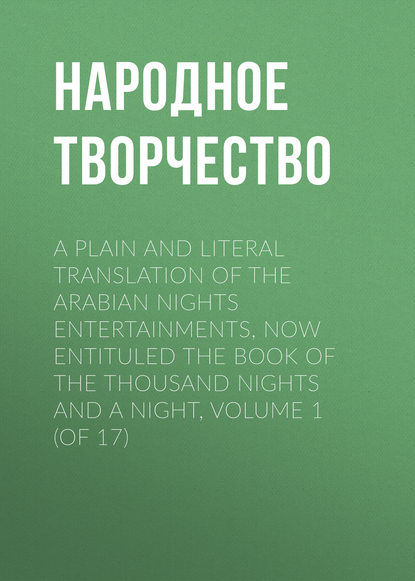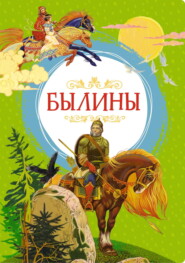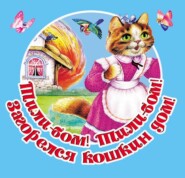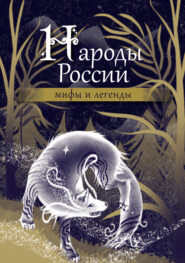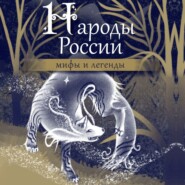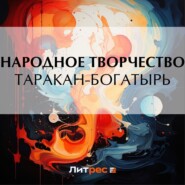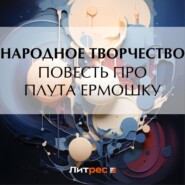По всем вопросам обращайтесь на: info@litportal.ru
(©) 2003-2024.
✖
A plain and literal translation of the Arabian nights entertainments, now entituled The Book of the Thousand Nights and a Night, Volume 1 (of 17)
Настройки чтения
Размер шрифта
Высота строк
Поля
Arab. "Katá"=Pterocles Alchata, the well-known sand-grouse of the desert. It is very poor white flesh.
240
Arab. "Khubz" which I do not translate "cake" or "bread," as that would suggest the idea of our loaf. The staff of life in the East is a thin flat circle of dough baked in the oven or on the griddle, and corresponding with the Scotch "scone," the Spanish "tortilla" and the Australian "flap-jack."
241
Arab. "Harísah," a favourite dish of wheat (or rice) boiled and reduced to a paste with shredded meat, spices and condiments. The "bangles" is a pretty girl eating with him.
242
These lines are repeated with a difference in Night cccxxx. They affect Rims cars, out of the way, heavy rhymes: e. g. here Sakáríj (plur. of Sakrúj, platters, porringers); Tayáhíj (plur. of Tayhúj, the smaller caccabis-partridge); Tabáhíj (Persian Tabahjah, an omelet or a stew of meat, onions, eggs, etc.) Ma'áríj ("in stepped piles" like the pyramids; which Lane ii. 495, renders "on the stairs"); Makáríj (plur. of Makraj, a small pot); Damálíj (plur. of dumlúj, a bracelet, a bangle); Dayábíj (brocades) and Tafáríj (openings, enjoyments). In Night cccxxx. we find also Sikábíj (plur. of Sikbáj, marinated meat elsewhere explained); Faráríj (plur. of farrúj, a chicken, vulg. farkh) and Dakákíj (plur. of dakújah, a small jar). In the first line we have also (though not a rhyme) Gharánik Gr. Τερανὸς, a crane, preserved in Romaic. The weeping and wailing are caused by the remembrance that all these delicacies have been demolished like a Badawi camp.
243
This is the vinum coctum, the boiled wine, still a favourite in Southern Italy and Greece.
244
Eastern topers delight in drinking at dawn: upon this subject I shall have more to say in other Nights.
245
Arab. "Adab," a crux to translators, meaning anything between good education and good manners. In mod. Turk. "Edibiyyet" (Adabiyat)=belles lettres and "Edebi" or "Edíb"=a littérateur.
246
The Caliph Al-Maamún, who was a bad player, used to say, "I have the administration of the world and am equal to it, whereas I am straitened in the ordering of a space of two spans by two spans." The "board" was then "a square field of well-dressed leather."
247
The Rabbis (after Matth. xix. 12) count three kinds of Eunuchs; (1) Seris chammah=of the sun, i. e. natural: (2) Seris Adam=manufactured per homines; and (3) Seris Chammayim=of God (i. e. religious abstainer). Seris (castrated) or Abd (slave) is the general Hebrew name.
248
The "Lady of Beauty."
249
"Káf" has been noticed as the mountain which surrounds earth as a ring does the finger: it is popularly used like our Alp and Alpine. The "circumambient Ocean" (Bahr al-muhít) is the Homeric Ocean-stream.
250
The pomegranate is probably chosen here because each fruit is supposed to contain one seed from Eden-garden. Hence a host of superstitions (Pilgrimage iii., 104) possibly connected with the Chaldaic-Babylonian god Rimmon or Ramanu. Hence Persephone or Ishtar tasted the "rich pomegranate's seed." Lenormant, loc. cit. pp. 166,182.
251
i. e. for the love of God – a favourite Moslem phrase.
252
Arab. "Báb," also meaning a chapter (of magic, of war, etc.), corresponding with the Persian "Dar" as in Sad-dar, the Hundred Doors. Here, however, it is figurative "I tried a new mode." This scene is in the Mabinogion.
253
I use this Irish term=crying for the dead; as English wants the word for the præfica or myrialogist. The practice is not encouraged in Al-Islam; and Caliph Abu Bakr said, "Verily a corpse is sprinkled with boiling water by reason of the lamentations of the living," i. e. punished for not having taken measures to prevent their profitless lamentations. But the practice is from Negroland whence it reached Egypt; and the people have there developed a curious system in the "weeping-song": I have noted this in "The Lake-Regions of Central Africa." In Zoroastrianism (Dabistan, chapt. xcvii.) tears shed for the dead form a river in hell, black and frigid.
254
These lines are hardly translateable. Arab. "Sabr" means "patience" as well as "aloes," hereby lending itself to a host of puns and double entendres more or less vile. The aloe, according to Burckhardt, is planted in grave-yards as a lesson of patience: it is also slung, like the dried crocodile, over house-doors to prevent evil spirits entering; "thus hung without earth and water," says Lane (M. E., chapt. xi.), "it will live for several years and even blossom. Hence (?) it is called Sabr, which signifies patience." But Sibr as well as Sabr (a root) means "long-sufferance." I hold the practise to be one of the many Inner African superstitions. The wild Gallas to the present day plant aloes on graves, and suppose that when the plant sprouts the deceased has been admitted to the gardens of Wák, the Creator. (Pilgrimage iii. 350).
255
Every city in the East has its specific title: this was given to Baghdad either on account of its superior police or simply because it was the Capital of the Caliphate. The Tigris was also called the "River of Peace (or Security)."
256
This is very characteristic: the passengers finding themselves in difficulties at once take command. See in my Pilgrimage (I. chapt. xi.) how we beat and otherwise maltreated the Captain of the "Golden Wire."
257
The fable is probably based on the currents which, as in Eastern Africa, will carry a ship fifty miles a day out of her course. We first find it in Ptolemy (vii. 2) whose Maniólai Islands, of India extra Gangem, cause iron nails to fly out of ships, the effect of the Lapis Herculeus (Loadstone). Rabelais (v. c. 37) alludes to it and to the vulgar idea of magnetism being counteracted by Skordon (Scordon or garlic). Hence too the Adamant (Loadstone) Mountains of Mandeville (chapt. xxvii.) and the "Magnetic Rock" in Mr. Puttock's clever "Peter Wilkins." I presume that the myth also arose from seeing craft built, as on the East African Coast, without iron nails. We shall meet with the legend again. The word Jabal ("Jebel" in Egypt) often occurs in these pages. The Arabs apply it to any rising ground or heap of rocks; so it is not always=our mountain. It has found its way to Europe e. g. Gibraltar and Monte Gibello (or Mongibel in poetry)="Mt. Ethne that men clepen Mounte Gybelle." Other special senses of Jabal will occur.
258
As we learn from the Nubian Geographer the Arabs in early ages explored the Fortunate Islands, Jazírát al-Khálidát (=Eternal Isles), or Canaries, on one of which were reported a horse and horseman in bronze with his spear pointing west. Ibn al-Wardi notes "two images of hard stone, each an hundred cubits high, and upon the top of each a figure of copper pointing with its hand backwards, as though it would say: – Return for there is nothing behind me!" But this legend attaches to older doings. The 23rd Tobba (who succeeded Bilkis), Malik bin Sharhabíl, (or Sharabíl or Sharahíl) surnamed Náshir al-Ni'ám=scatterer of blessings, lost an army in attempting the Western sands and set up a statue of copper upon whose breast was inscribed in antique characters: —
There is no access behind me,
Nothing beyond,
(Saith) The Son of Sharabíl.
259
i. e. I exclaimed "Bismillah!"
260
The lesser ablution of hands, face and feet; a kind of "washing the points." More in Night ccccxl.
261
Arab. "Ruka'tayn"; the number of these bows which are followed by the prostrations distinguishes the five daily prayers.
262
The "Beth Kol" of the Hebrews; also called by the Moslems "Hátif"; for which ask the Spiritualists. It is the Hindu "voice divine" or "voice from heaven."
240
Arab. "Khubz" which I do not translate "cake" or "bread," as that would suggest the idea of our loaf. The staff of life in the East is a thin flat circle of dough baked in the oven or on the griddle, and corresponding with the Scotch "scone," the Spanish "tortilla" and the Australian "flap-jack."
241
Arab. "Harísah," a favourite dish of wheat (or rice) boiled and reduced to a paste with shredded meat, spices and condiments. The "bangles" is a pretty girl eating with him.
242
These lines are repeated with a difference in Night cccxxx. They affect Rims cars, out of the way, heavy rhymes: e. g. here Sakáríj (plur. of Sakrúj, platters, porringers); Tayáhíj (plur. of Tayhúj, the smaller caccabis-partridge); Tabáhíj (Persian Tabahjah, an omelet or a stew of meat, onions, eggs, etc.) Ma'áríj ("in stepped piles" like the pyramids; which Lane ii. 495, renders "on the stairs"); Makáríj (plur. of Makraj, a small pot); Damálíj (plur. of dumlúj, a bracelet, a bangle); Dayábíj (brocades) and Tafáríj (openings, enjoyments). In Night cccxxx. we find also Sikábíj (plur. of Sikbáj, marinated meat elsewhere explained); Faráríj (plur. of farrúj, a chicken, vulg. farkh) and Dakákíj (plur. of dakújah, a small jar). In the first line we have also (though not a rhyme) Gharánik Gr. Τερανὸς, a crane, preserved in Romaic. The weeping and wailing are caused by the remembrance that all these delicacies have been demolished like a Badawi camp.
243
This is the vinum coctum, the boiled wine, still a favourite in Southern Italy and Greece.
244
Eastern topers delight in drinking at dawn: upon this subject I shall have more to say in other Nights.
245
Arab. "Adab," a crux to translators, meaning anything between good education and good manners. In mod. Turk. "Edibiyyet" (Adabiyat)=belles lettres and "Edebi" or "Edíb"=a littérateur.
246
The Caliph Al-Maamún, who was a bad player, used to say, "I have the administration of the world and am equal to it, whereas I am straitened in the ordering of a space of two spans by two spans." The "board" was then "a square field of well-dressed leather."
247
The Rabbis (after Matth. xix. 12) count three kinds of Eunuchs; (1) Seris chammah=of the sun, i. e. natural: (2) Seris Adam=manufactured per homines; and (3) Seris Chammayim=of God (i. e. religious abstainer). Seris (castrated) or Abd (slave) is the general Hebrew name.
248
The "Lady of Beauty."
249
"Káf" has been noticed as the mountain which surrounds earth as a ring does the finger: it is popularly used like our Alp and Alpine. The "circumambient Ocean" (Bahr al-muhít) is the Homeric Ocean-stream.
250
The pomegranate is probably chosen here because each fruit is supposed to contain one seed from Eden-garden. Hence a host of superstitions (Pilgrimage iii., 104) possibly connected with the Chaldaic-Babylonian god Rimmon or Ramanu. Hence Persephone or Ishtar tasted the "rich pomegranate's seed." Lenormant, loc. cit. pp. 166,182.
251
i. e. for the love of God – a favourite Moslem phrase.
252
Arab. "Báb," also meaning a chapter (of magic, of war, etc.), corresponding with the Persian "Dar" as in Sad-dar, the Hundred Doors. Here, however, it is figurative "I tried a new mode." This scene is in the Mabinogion.
253
I use this Irish term=crying for the dead; as English wants the word for the præfica or myrialogist. The practice is not encouraged in Al-Islam; and Caliph Abu Bakr said, "Verily a corpse is sprinkled with boiling water by reason of the lamentations of the living," i. e. punished for not having taken measures to prevent their profitless lamentations. But the practice is from Negroland whence it reached Egypt; and the people have there developed a curious system in the "weeping-song": I have noted this in "The Lake-Regions of Central Africa." In Zoroastrianism (Dabistan, chapt. xcvii.) tears shed for the dead form a river in hell, black and frigid.
254
These lines are hardly translateable. Arab. "Sabr" means "patience" as well as "aloes," hereby lending itself to a host of puns and double entendres more or less vile. The aloe, according to Burckhardt, is planted in grave-yards as a lesson of patience: it is also slung, like the dried crocodile, over house-doors to prevent evil spirits entering; "thus hung without earth and water," says Lane (M. E., chapt. xi.), "it will live for several years and even blossom. Hence (?) it is called Sabr, which signifies patience." But Sibr as well as Sabr (a root) means "long-sufferance." I hold the practise to be one of the many Inner African superstitions. The wild Gallas to the present day plant aloes on graves, and suppose that when the plant sprouts the deceased has been admitted to the gardens of Wák, the Creator. (Pilgrimage iii. 350).
255
Every city in the East has its specific title: this was given to Baghdad either on account of its superior police or simply because it was the Capital of the Caliphate. The Tigris was also called the "River of Peace (or Security)."
256
This is very characteristic: the passengers finding themselves in difficulties at once take command. See in my Pilgrimage (I. chapt. xi.) how we beat and otherwise maltreated the Captain of the "Golden Wire."
257
The fable is probably based on the currents which, as in Eastern Africa, will carry a ship fifty miles a day out of her course. We first find it in Ptolemy (vii. 2) whose Maniólai Islands, of India extra Gangem, cause iron nails to fly out of ships, the effect of the Lapis Herculeus (Loadstone). Rabelais (v. c. 37) alludes to it and to the vulgar idea of magnetism being counteracted by Skordon (Scordon or garlic). Hence too the Adamant (Loadstone) Mountains of Mandeville (chapt. xxvii.) and the "Magnetic Rock" in Mr. Puttock's clever "Peter Wilkins." I presume that the myth also arose from seeing craft built, as on the East African Coast, without iron nails. We shall meet with the legend again. The word Jabal ("Jebel" in Egypt) often occurs in these pages. The Arabs apply it to any rising ground or heap of rocks; so it is not always=our mountain. It has found its way to Europe e. g. Gibraltar and Monte Gibello (or Mongibel in poetry)="Mt. Ethne that men clepen Mounte Gybelle." Other special senses of Jabal will occur.
258
As we learn from the Nubian Geographer the Arabs in early ages explored the Fortunate Islands, Jazírát al-Khálidát (=Eternal Isles), or Canaries, on one of which were reported a horse and horseman in bronze with his spear pointing west. Ibn al-Wardi notes "two images of hard stone, each an hundred cubits high, and upon the top of each a figure of copper pointing with its hand backwards, as though it would say: – Return for there is nothing behind me!" But this legend attaches to older doings. The 23rd Tobba (who succeeded Bilkis), Malik bin Sharhabíl, (or Sharabíl or Sharahíl) surnamed Náshir al-Ni'ám=scatterer of blessings, lost an army in attempting the Western sands and set up a statue of copper upon whose breast was inscribed in antique characters: —
There is no access behind me,
Nothing beyond,
(Saith) The Son of Sharabíl.
259
i. e. I exclaimed "Bismillah!"
260
The lesser ablution of hands, face and feet; a kind of "washing the points." More in Night ccccxl.
261
Arab. "Ruka'tayn"; the number of these bows which are followed by the prostrations distinguishes the five daily prayers.
262
The "Beth Kol" of the Hebrews; also called by the Moslems "Hátif"; for which ask the Spiritualists. It is the Hindu "voice divine" or "voice from heaven."





